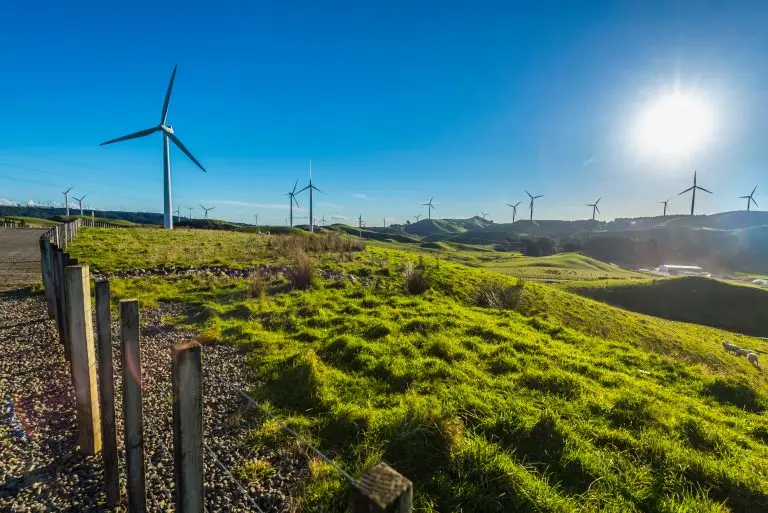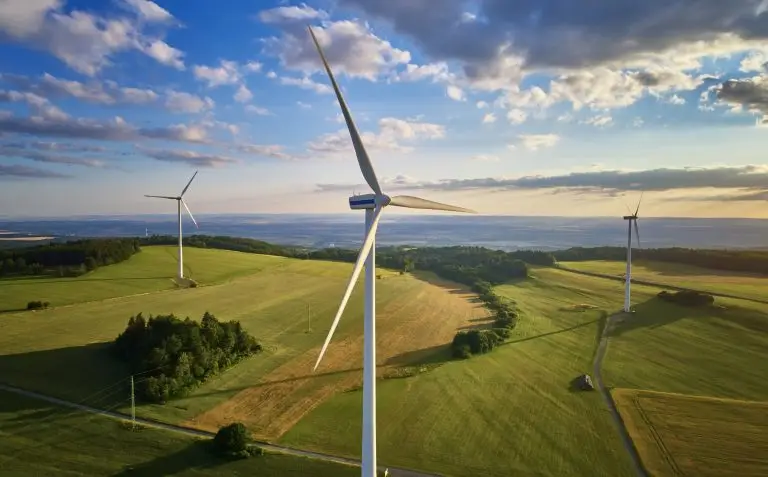The draft law regarding the necessary measures for performing operations for offshore wind exploitation (“Draft Law“) has been forwarded this week to the Chamber of Deputies after being tacitly approved by the Senate. The draft has been registered with the Senate in June 2020 and, if approved by the Chamber of Deputies, would be the first Romanian law which aims at providing a comprehensive legal framework for the construction and operation of offshore wind farms.
The Draft Law regulates matters relating to all stages of development and operation of an offshore wind farm: project study, permitting and performance of construction works, production phase and decommissioning.
The competent authority to issue the relevant licenses and authorizations and oversee the observance of the Draft Law is the Ministry for Economy, Energy and Business Environment (“Ministry“).
As per the Draft Law, the necessary licenses and authorizations for construction and operation of offshore wind farms may be obtained through a competitive tender procedure or could be directly attributed to an interested party, upon its request – “open procedure”.
During an open procedure, the project developer sets the location and capacity of the envisaged wind farm and submits a request with the Ministry. The Ministry then analyses if the project developer fulfils the technical and financial requirements and if the offshore wind perimeter is relevant.
In accordance with the Draft Law, the construction and operation of offshore wind farms would be regulated through a set of licenses and authorizations which should be obtained successively, as the project transitions from one development stage to another and finally to the operational phase, as follows:
- License for performance of preliminary investigations
As per the Draft Law, the license will be valid for one year, with the option of being extended for another year and will grant the license holder the right to perform investigations related to the construction of the offshore wind farm. The requirements which have to be met will be established depending on the procedure followed (tender or open procedure).
- License for construction of wind farms
The license act as a construction permit for offshore works and for onshore works up to (and including) the coast terminal. A set of documents, which differ depending on the location of the construction, offshore or onshore, will have to be submitted in order to obtain the license.
For onshore constructions the developer will have to obtain an urbanism certificate and the permits and authorizations indicated therein, as is the case for typical wind projects. The difference however is that the urbanism certificate (and related permits and authorizations) for onshore construction works related to an offshore wind farm is valid for up to five years (including extensions) as opposed to the normal validity period of an urbanism certificate which can be of maximum three years (including extensions).
Legal provisions regarding protection of historical monuments, archaeological sites and natural protected areas are applicable for offshore wind projects as well, with special norms being included in the Draft Law in this respect.
- Production license or production authorization
Both the production license and the production authorization will grant the holder the right to exploit wind energy and produce electricity. The production authorization would be required for electricity power plants with a capacity of over 25 MW – high capacity power plant. Both the production license and the production authorization will be granted to if the applicant has the technical and financial capacity for operating the relevant wind farm/high capacity power plant. The Ministry may impose additional conditions before granting a production authorization.
The Draft Law further provides that any direct or indirect transfer of rights and obligations resulting from licenses/authorizations may be performed subject to approval from the Ministry. It is not clear if this provision was intended only for specific licenses/authorizations due to lack of correlation between the articles in the Draft Law.
When it comes to securing rights over lands necessary for development and operation of offshore wind farms, the Draft Law provides that lands owned by natural or legal persons, other than the State or territorial administrative units, will have to be secured through common legal operations such as sale, exchange of lands, lease.
For lands publicly or privately owned by the State or by territorial administrative units, the Draft Law establishes a right of way over the lands, including their underground and overground, necessary for performance of works relating to the offshore wind farm (e.g., geotechnical drilling, construction of technological installations, transport network, offshore platforms, access roads). The Draft Law also regulates an easement right over lands, other than lands of public use, necessary for access to the offshore perimeters. Both the right of way and the easement right regulated by the Draft Law will be obtained in exchange for a fee payable annually.
As a complete novelty, the Draft Law provides for a rather unusual and poorly drafted obligation incumbent upon owners of wind farms located offshore: as per the Draft Law, it would seem that 20% of the shareholding in the company owning the offshore wind park should be offered for sale to local citizens whose residence is located at a distance of less than 4.5 kilometres from the wind farm or whose residence is in a town/village located 16 kilometres from the wind farm.
Subventions are also regulated by the Draft Law, for wind farms developed following a tender procedure, the contracts for difference mechanism will be applicable whereas wind farms developed based on the open procedure are entitled to a premium of up to EUR 0.025/kWh, in addition to the electricity market price. Note should be made that the amount obtained by cumulating the electricity market price and the premium may not exceed EUR 0.060/kWh, otherwise the premium will be reduced accordingly. In addition, for a period of 20 years as of connecting top the grid, wind farms developed based on the open procedure would also benefit from a compensation for balancing costs of EUR 0.020/kWh.
Although we welcome the initiative of regulating offshore wind farms, we expect amendments being brought to the Draft Law during analysis and debates in the Chamber of Deputies, as some of the provisions included in the current draft can be improved upon.




